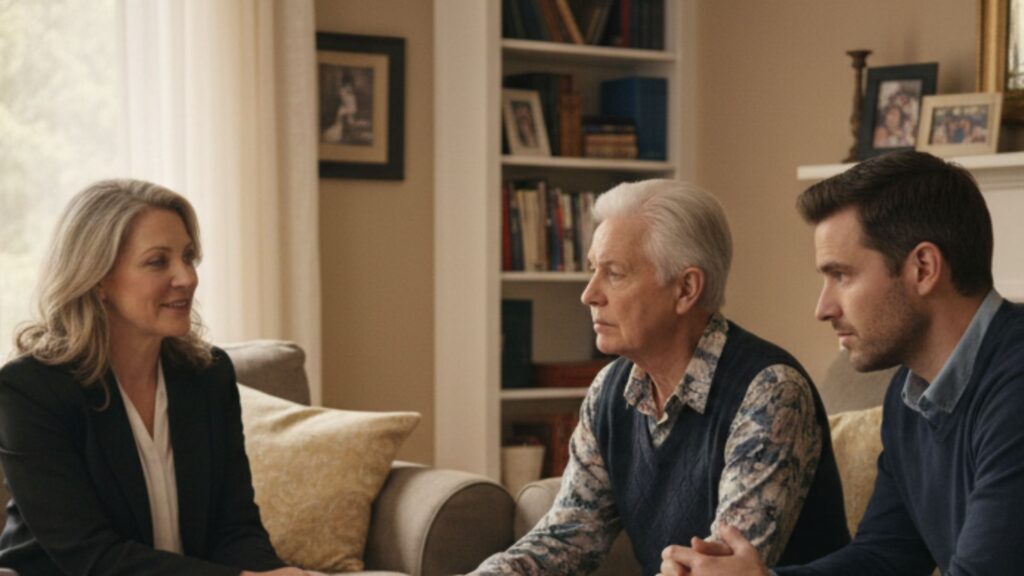Introduction
Family relationships are some of the most meaningful connections we will ever have, but also the most complicated. Disagreements, hurt feelings, and unspoken words can linger for years, creating divides that seem impossible to repair. This is where the power of forgiveness steps in. Understanding why forgiveness is important not only helps individuals heal but also strengthens families as they navigate life’s challenges together.
Whether it’s forgiving a sibling after a misunderstanding, learning to let go of resentment toward parents, or forgiving ourselves for past choices, embracing forgiveness can pave the way to deeper trust, healthier communication, and lasting peace within families.
Why Forgiveness Is Important for Families
At its core, forgiveness is not about excusing hurtful behavior, it’s about choosing freedom over resentment. Families that learn how to forgive create space for growth, compassion, and stronger bonds. Holding onto anger, by contrast, often leads to cycles of conflict that erode family unity.
Psychologists note that forgiveness reduces stress, lowers anxiety, and even supports physical well-being. In family life, this translates into calmer conversations, better cooperation, and the ability to move forward rather than staying stuck in past pain.
Why Self-Forgiveness Is Important
It’s easy to focus on forgiving others, but many people overlook the need to forgive themselves. Families thrive when each member is emotionally healthy, and self-forgiveness plays a key role in that balance.
When we release ourselves from guilt, shame, or regret, we’re able to show up with greater patience and love for others. Parents who practice self-forgiveness often model resilience for their children, while adult children who forgive themselves can let go of the burden of “what ifs” that strain family relationships.
This process of self-compassion is not about denying mistakes; it’s about recognizing them, making amends where possible, and committing to doing better. That’s what builds authentic connections.
Forgiveness and Healing: Rebuilding Trust
True healing in families begins with forgiveness. When hurt is acknowledged and forgiveness is offered, the door opens to reconciliation. This doesn’t mean forgetting the pain or pretending it never happened. It means allowing space for trust to be rebuilt over time.
Counselors often emphasize that forgiveness is more about the forgiver than the one being forgiven. By choosing forgiveness, families take the first step toward healing wounds that might otherwise become permanent scars.
Forgiving Others: The Hard but Necessary Step
Letting go of anger toward another family member is rarely easy. Forgiving others requires humility, patience, and often, repeated effort. But it is essential for long-term harmony.
Consider disputes that arise during major family decisions, such as caring for an aging parent or dividing property. Without forgiveness, these conflicts can grow into lifelong estrangements. But with an open heart and willingness to forgive, families can put love and support first, exactly when they are needed most.
Forgiveness Therapy and Learning to Forgive
For some, forgiveness does not come naturally. That’s where forgiveness therapy or guided counseling can help. This structured approach teaches families and individuals the steps toward letting go of resentment and cultivating empathy.
Learning to forgive is like building muscle. With practice, whether through therapy, faith communities, or self-reflection, families can shift from holding grudges to embracing understanding. This transformation strengthens not only immediate relationships but also the family’s legacy for future generations.
True Forgiveness: A Legacy of Peace
Ultimately, true forgiveness is a gift we give to ourselves and our families. It ensures that love outweighs anger, that compassion outweighs pride, and that healing outweighs hurt. Families who practice forgiveness leave behind a legacy of peace; one that endures long after disagreements are forgotten.
Connecting Forgiveness to Future Planning
Forgiveness is often about preparing for the future; choosing relationships over resentments. In the same way, thoughtful planning ensures your family’s security for generations to come. Just as forgiveness strengthens bonds, estate planning protects them.
At Krause Estate Planning and Elder Law Center, we believe family comes first; both in healing relationships and in preparing for the future. If you’re ready to strengthen your family’s bonds and protect their future, schedule a consultation with our team today. Together, we’ll help you create a plan that reflects your values, your legacy, and your love.



